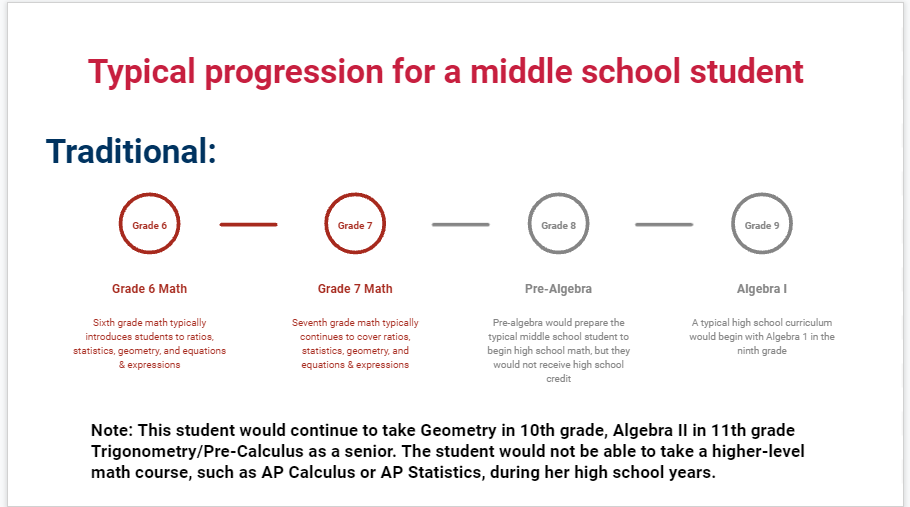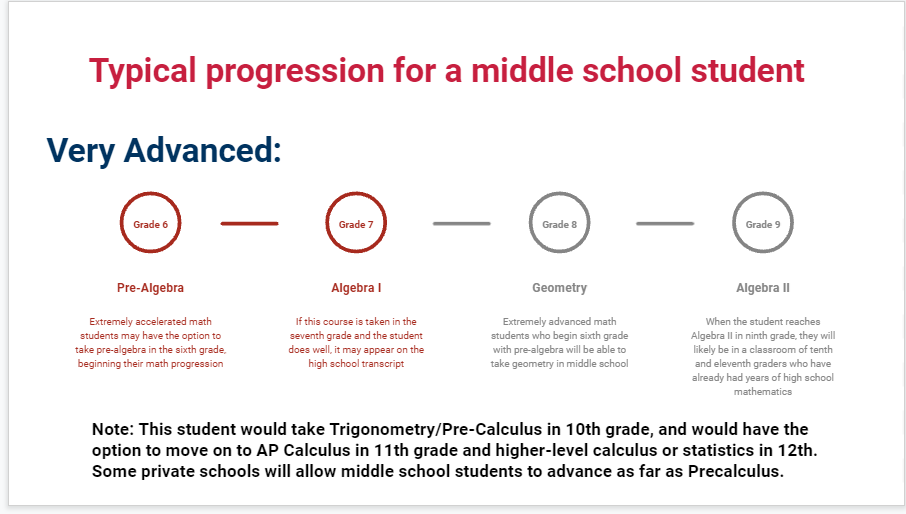We’ve been hearing the question a lot lately: “How soon is too soon for my child to begin thinking about the college process? He’s only a seventh grader, does he really have to worry about this right now?”
The answer: yes and no. Your seventh grader certainly does not need to start drafting a Common Application essay or begin taking AP exams quite yet! But with just a bit of thought toward the end of middle school, you can help set your student up for success later on - during the active phase of the college process.
Believe it or not, middle school coursework often sets the stage for high school. Take a look at the basic progression:
As noted, this student would not be able to take high school Calculus if she were to continue on this path - which may be a dealbreaker for a student applying to an engineering or other STEM program. And that student might not even realize that her seventh grade math course is closing such a big door!
Compare that progression to this very advanced progression that would allow a student to take higher-level high school math courses:
This progression can differ from school to school, so talk to your student’s counselor about their individual school’s progression and whether middle school credits count toward the high school transcript.
If at all possible, we recommend that all middle school students plan to take Algebra I and at least one year of a foreign language. If your student does well in Spanish I and Algebra I in middle school, he will be able to continue with a more challenging high school progression.
But if your student doesn’t do well, there is no harm done - he will just retake Algebra I in high school and the previous grade will likely not appear on the transcript! So working to get that head start in middle school course planning can really only benefit most students, with the caveat that this can depend on the school system.
In the end, colleges are far more concerned that students are challenging themselves during high school - so if taking Algebra I in the eighth grade is going to mean an extremely stressful year for you and your student, it is better to wait!
Remember: colleges won’t know which types of opportunities students had in middle school, but they will want to see students who choose the most challenging classes in their progression once high school begins (and of course, students who excel in those courses!).
The bottom line is that your student should take the most rigorous curriculum available to them in high school.
Their placement at the start is relevant, but it doesn’t matter nearly as much as it matters to take advantage of everything their high school offers!
Still have questions about middle school course planning? Book a strategy session with us and we can help set your student up for success, in high school and beyond!



